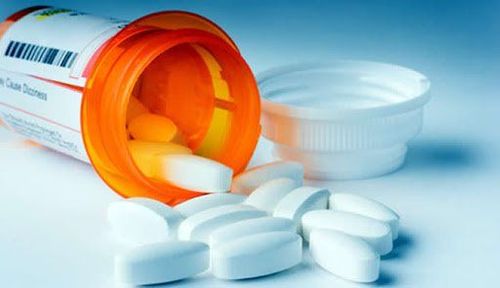This is an automatically translated article.
When it comes to trouble falling asleep, people all over the world have different measures. In which, counting sheep to sleep is a "classic" measure. To do the lying down counting sheep, the person who wants to go to sleep imagines an endless flock of white sheep jumping over the fence, counting each one as they leave. It's basically a simple, rhythmic, and repetitive action that explains why counting sheep is easy to fall asleep.
1. Why is it easy to count sheep to sleep?
This is the question of many people. In fact, to answer the question of whether lying down to count sheep helps people with insomnia fall asleep faster, researchers at the University of Oxford looked for people with difficulty falling asleep and tracked them down while doing a study. in three different techniques. One of those techniques is counting sheep.
The 2001 Oxford University study divided fifty people with sleep disorders into three random groups. One group was asked to visualize calming and peaceful scenes like waterfalls while trying to fall asleep. Another group was asked to simply follow a normal routine that helped ease sleep. The final group was asked to count sheep by counting imaginary sheep as they jumped over the fence one by one.
The result of this study is that imagining a quiet scene helps subjects in this group fall asleep about 20 minutes faster than on nights without the test. Surprisingly, however, those who counted sheep to fall back asleep took longer than usual to fall asleep. Although there is no proven reason for this difference, researchers have many theories.
First, researchers believe that the act of visualizing a tranquil yet engaging scene requires more mental energy than counting imaginary sheep repeatedly. Increasing the mental energy expenditure of the visualized scene can help the brain fall asleep faster. Another theory is that the still scene method might be easier to use because it is objectively a more enjoyable visualization activity. In contrast, compared to counting sheep, this method looks extremely simple, easily boring and causes patients to give up if they have to do it for a long time. Although the sample size of the study was indeed small, the results certainly still cast doubt on the effectiveness of the sheep counting method for sleeping.
2. Insomnia: When sheep count fails... How?
The National Sleep Foundation's 2007 American Sleep Survey found that 67% of women say they regularly experience sleep problems. Another poll also found that 35% of adults have insomnia every night.
One option that people with sleep disorders often use today is sleeping pills (which will never be... counting sheep to sleep). As a result, over the past 10 to 15 years, the market has been flooded with new sleeping pills, which limit the side effects and risk of dependence as previous sleeping pills.

Đếm cừu để ngủ không phải khinào cũng thành công
3. Things to consider when taking sleeping pills
Sleeping pills are not always suitable for everyone with insomnia.
Indeed, if the insomnia is caused by a sleep-related breathing disorder, be it sleep apnea or restless legs syndrome, these medications will not address the underlying problem. At the same time, pregnant women should not take these drugs. And if one is looking after young children, sleeping pills may never be appropriate.
Recently, some reports suggest unusual side effects of sleeping pills. Even with prescription sleeping pills, people can experience bizarre behavior while sleeping. Others experience drowsy driving, an increased risk of an accident, or binge eating or severe allergic reactions. Therefore, pharmaceutical companies must always clearly write down possible adverse effects on drug labels for users to know and monitor and stop the drug when detecting abnormalities.
Also, if the doctor prescribes one of the sleeping pills, a loved one, a partner or a carer living with them should be aware of whether the patient is disturbed at night by nightmares or abnormal limb movements. .

Nằm đếm cừu để ngủ bị thất bại bạn có thể sử dụng thuốc theo chỉ định của bác sĩ chuyên khoa
4. Good sleep habits without drugs
Instead of taking medication from the beginning, knowing and following good sleep hygiene practices, patients will easily fall asleep naturally without the risk of side effects:
Use your bed only to sleep, not to pay bills or work on your laptop or watch TV, read the news Avoid caffeine, nicotine, and alcohol for 4 to 6 hours before bed Don't exercise too late at night Avoid overeating before bed Make sure your bedroom is a place of complete relaxation and quiet Consider buying a sleep mask or white noise canceling machine if you can't block out light or outside noise Take a shower warm before bed Maintain the habit of going to bed at the same time every day, even on weekends and holidays In summary, with objective studies, lying down counting sheep does not really give a meaningful effect. Instead, sleep hygiene measures along with relaxation and stress-reduction therapies will help you sleep better. Finally, the use of sleeping pills, it is necessary to follow the instructions to always ensure the safety of your own mental health.
Please dial HOTLINE for more information or register for an appointment HERE. Download MyVinmec app to make appointments faster and to manage your bookings easily.







![[Vinmec - Q&A with experts] Topic 01: Insomnia](/static/uploads/small_20190716_042752_932594_hoi_dap_cung_chuyen_max_1800x1800_jpg_28a5ee22bf.jpg)





